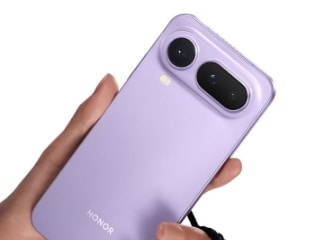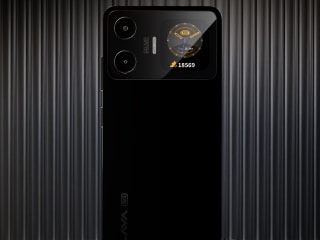Google Allo Now Lets You Turn Selfies Into Personalised Stickers Using Machine Learning

Since its launch, Google Allo has not been able to become a mainstream messaging app like its rivals WhatsApp, Messenger etc. There are a lot of basic features that are still being added in the app like the chat backup feature, which got it 50 million downloads recently. In the meantime, Google decided to go in line with the concept of Bitmoji, a popular app that creates cool avatars out of user's photograph, and introduced a new feature in Allo that lets you turn your selfies into personalised cartoon stickers and emojis. It is currently rolling out on Allo on Android, while the iOS version will soon receive the feature.
While the functionality of generating stickers out of selfies is not new and has already been available on Bitmoji for enough time, Google's version uses a combination of neural networks and the work of artists, which have partnered with the company. In simple terms, Google Allo will employ machine learning to map selfies to produce the colour, structure, and animations for the stickers. These stickers can be further customised as per the user's preference.
![]() In its research blog post, Google's Expressions Creative Director for Allo, Jennifer Daniel explains, "To create an illustration of you that captures the qualities that would make it recognizable to your friends, we worked alongside an artistic team to create illustrations that represented a wide variety of features. Artists initially designed a set of hairstyles, for example, that they thought would be representative, and with the help of human raters we used these hairstyles to train the network to match the right illustration to the right selfie."
In its research blog post, Google's Expressions Creative Director for Allo, Jennifer Daniel explains, "To create an illustration of you that captures the qualities that would make it recognizable to your friends, we worked alongside an artistic team to create illustrations that represented a wide variety of features. Artists initially designed a set of hairstyles, for example, that they thought would be representative, and with the help of human raters we used these hairstyles to train the network to match the right illustration to the right selfie."
Keeping in mind the perspective of gender neutrality, inclusion of all races and colour, Google Allo creates stickers and emojis belonging to people of all races, gender and colour. In an interview with Fast Company, Jason Cornwell, who leads UX department for Google's communication projects, noted that the creation of emojis and stickers do not become an end goal instead it is a part of an effort that is aimed "to let someone create something that feels like themselves, to themselves."
Elaborating on the advancement of machine learning and algorithms used for Google Allo's sticker creation technology, Daniel refers to the concept of 'Uncanny Valley' which is the hypothesis that human replicas which appear almost, but not exactly, like real human beings elicit feelings of eeriness and revulsion among some observers, as on Wikipedia. "Rather than aim to replicate a person's appearance exactly, pursuing a lower resolution model, like emojis and stickers, allows the team to explore expressive representation by returning an image that is less about reproducing reality and more about breaking the rules of representation," he notes while explaining how the company takes note of emotions rather than focusing on the visible physical appearances.
Catch the latest from the Consumer Electronics Show on Gadgets 360, at our CES 2026 hub.
Related Stories
- Samsung Galaxy Unpacked 2025
- ChatGPT
- Redmi Note 14 Pro+
- iPhone 16
- Apple Vision Pro
- Oneplus 12
- OnePlus Nord CE 3 Lite 5G
- iPhone 13
- Xiaomi 14 Pro
- Oppo Find N3
- Tecno Spark Go (2023)
- Realme V30
- Best Phones Under 25000
- Samsung Galaxy S24 Series
- Cryptocurrency
- iQoo 12
- Samsung Galaxy S24 Ultra
- Giottus
- Samsung Galaxy Z Flip 5
- Apple 'Scary Fast'
- Housefull 5
- GoPro Hero 12 Black Review
- Invincible Season 2
- JioGlass
- HD Ready TV
- Laptop Under 50000
- Smartwatch Under 10000
- Latest Mobile Phones
- Compare Phones
- Tecno Spark Go 3
- iQOO Z11 Turbo
- OPPO A6c
- Samsung Galaxy A07 5G
- Vivo Y500i
- OnePlus Turbo 6V
- OnePlus Turbo 6
- Itel Zeno 20 Max
- Lenovo Yoga Slim 7x (2025)
- Lenovo Yoga Slim 7a
- Lenovo Idea Tab Plus
- Realme Pad 3
- Garmin Quatix 8 Pro
- NoiseFit Pro 6R
- Haier H5E Series
- Acerpure Nitro Z Series 100-inch QLED TV
- Asus ROG Ally
- Nintendo Switch Lite
- Haier 1.6 Ton 5 Star Inverter Split AC (HSU19G-MZAID5BN-INV)
- Haier 1.6 Ton 5 Star Inverter Split AC (HSU19G-MZAIM5BN-INV)

















